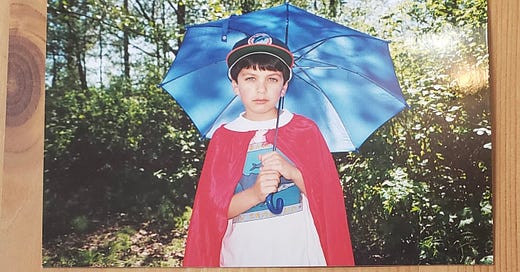They’ll Try to Kill Your Body Because They Don’t Know You Have a Soul
imagine a better you in heaven. already.
imagine being an angel
could also mean being trapped, like prisoners to the gods.
—jayy dodd, The Black Condition, Ft. Narcissus
Star Ahmerasu’s 2019 album of orchestral, acapella, and instrumental tracks is titled Incandescent Body. A body luminous, of brilliance, aglow. For a long time, I was suspicious of such beauty, not trusting its reality outside of platitude. But when I first listened to Incandescent Body, it stopped me in my tracks.
It takes so much for me to feel beautiful. There is always something in the way.
I think, sometimes, this is what Black trans women artists like Ahmerasu know better than anyone else. In the version of “Meg Ryan” appearing on Incandescent Body, the track begins with a layered stack of spoken words from the titular white woman the song roasts for her invulnerability:
I can be president, I can be queen, I can do whatever I want,
I’m a white woman, I can do whatever I want.
This isn’t the sound of envy. When Ahmerasu’s searching vocals break through Meg’s flatness, we find that the song is about an altogether different dilemma than the fact of white women who take up all the air in the room. It’s about how to find beauty out of the ruins of the world that white women have spoiled for the rest of us:
When I think about what I want to be,
There’s always something clear that I see.
I fly, I fly, I fly
Over and up and around
I’ll never be close to the ground
I fly, I’m flying.
There are lessons that we learn over time,
I am human and humans cannot fly.
But in dreaming I start believing
There’s nothing that I cannot do, it’s this that I know to be true
So I lift my wings up, to the sky
And I close my eyes and I start to fly.
A few days ago, I was driving through the mountains of North Carolina, quiet from a week in which I was turned away from a doctor’s office for being trans while suffering a substantial infection. What I mean is, I spent a week screaming through the flesh to be cared for, certain that I would not be, and so in the aftermath I had become small and tired. I found myself crying, again and again, as my car wound through the mountain parkway. I put on “Meg Ryan” and thought about what it might feel like to close my eyes, instead of opening them, in order to fly.
“I’ve recently been doing a lot of self-care, staying in my little dungeon,” said Ahmerasu in a 2017 interview.
In the orchestral arrangement of her track “Klonopin,” the piano testifies hauntingly—insistently, with great tenderness—while the violin is a spider. It spins a sticky web strong enough, tense enough, to register the feeling of being thrown that needs to be dulled when shit gets too real and it’s not your fault.
I told my therapist about the crisis of turning thirty. About how I used to linger morbidly on that faulty statistic that said trans women of color’s life expectancy averaged out to thirty five, like a predestination or a warning. I said I knew the number wasn’t really true. She replied that it didn’t matter. Even if I knew it was wrong, what kind of world says that to you?
When J. Jennifer Espinoza writes that there should be flowers, she reminds us of the remarkable force in tenderness, in beauty, for girls like us. Not ornament, not adornment, not luxury or consumption. Not sublime, not subliminal, not sublimated. The aesthetic sense and force of life is not merely for pleasure, and nothing like entertainment. Maybe it’s diversion, but only away from the things you build that you thought would be your salvation and transcendence out of the cruel world, yet come with unpayable prices: for me, a mind addicted to the steroid of analysis.
In the aesthetic hides the possibility of being safe enough, secure enough, to stretch. Capacious enough to soften your exterior and move, bend, or sway. Having scaled the mountain, to evaporate into the air, trusting.
I would like to learn to be beautiful, by which I mean I would like to feel the freedom of that stretch extending outward into the world and folding it back into my body. They will try to kill that body, but only because they don’t know it holds a soul. Sophie is right that it’s okay to cry first, or always. The feeling that follows might be beautiful.



